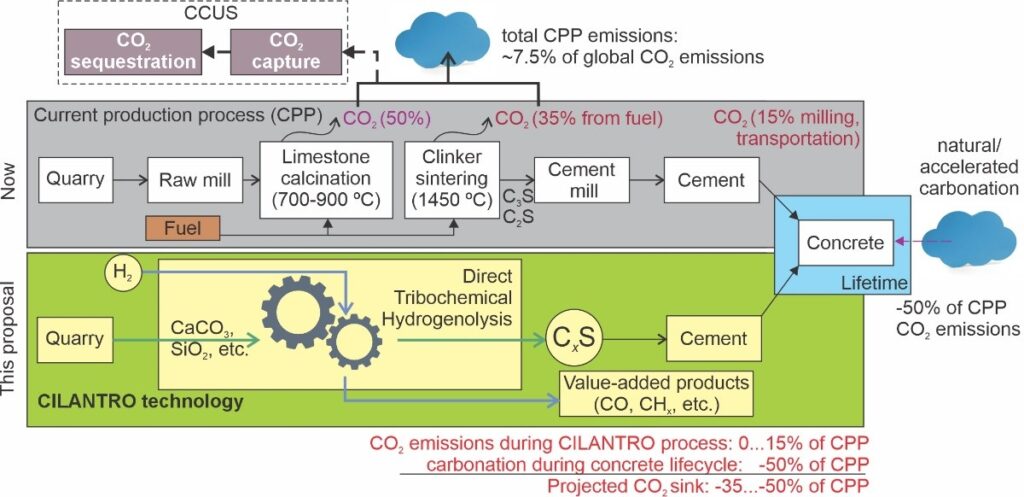A groundbreaking European project, “CILANTRO” (CARBON-NEGATIVE CEMENT: A TRIBOLOGICAL SOLUTION FOR LIMESTONE DECARBONATION, SILICATION AND CARBON UTILIZATION), led by the research group of Dr. Román Nevshupa at the IETCC-CSIC, has been selected for funding under the highly competitive European Innovation Council (EIC) Pathfinder challenge “Towards cement and concrete as a carbon sink.”
The cement industry is a significant contributor to global CO2 emissions, accounting for approximately 8% of all industry-related CO2. Addressing this challenge is crucial for achieving climate neutrality goals. The EIC Pathfinder call on “Towards cement and concrete as a carbon sink” specifically sought ambitious, high-risk/high-gain research projects aiming for breakthrough technologies to drastically reduce or even absorb CO2 emissions in this sector.
The call attracted significant attention, with 80 proposals submitted from across Europe. Project CILANTRO was one of only six proposals ultimately selected to form a specialized portfolio of projects. This portfolio approach fosters collaboration and synergy among the selected projects, aiming to accelerate the development and implementation of a cluster of innovative solutions for a more sustainable cement industry.
Under the leadership of Dr. Román Nevshupa the CILANTRO project will focus on exploring novel tribological solutions for critical processes in cement production. The project’s full title hints at its innovative approach to key chemical and mechanical challenges involved in creating cement that can act as a carbon sink. Dr. Nevshupa’s expertise in tribochemistry and material characterization is particularly relevant to the project’s objectives.
The CILANTRO project is expected to run for 4 years and will involve collaboration of three groups within CSIC (LaTTe and Cement Chemistry from IETCC and Energy and Sustainable Chemistry from ICP) and seven partners: HOLCIM Innovation Centre (France), Autonoma University of Madrid (Spain), TEKNIKER (Spain), IWM from Fraunhofer Society (Germany), CTTI (Poland), F6S (Ireland) and Rtec-Instruments (Switzerland). The outcomes of the project have the potential to significantly impact the sustainability of the cement industry, paving the way for a future where these essential materials contribute to a carbon-neutral or even carbon-negative built environment.
